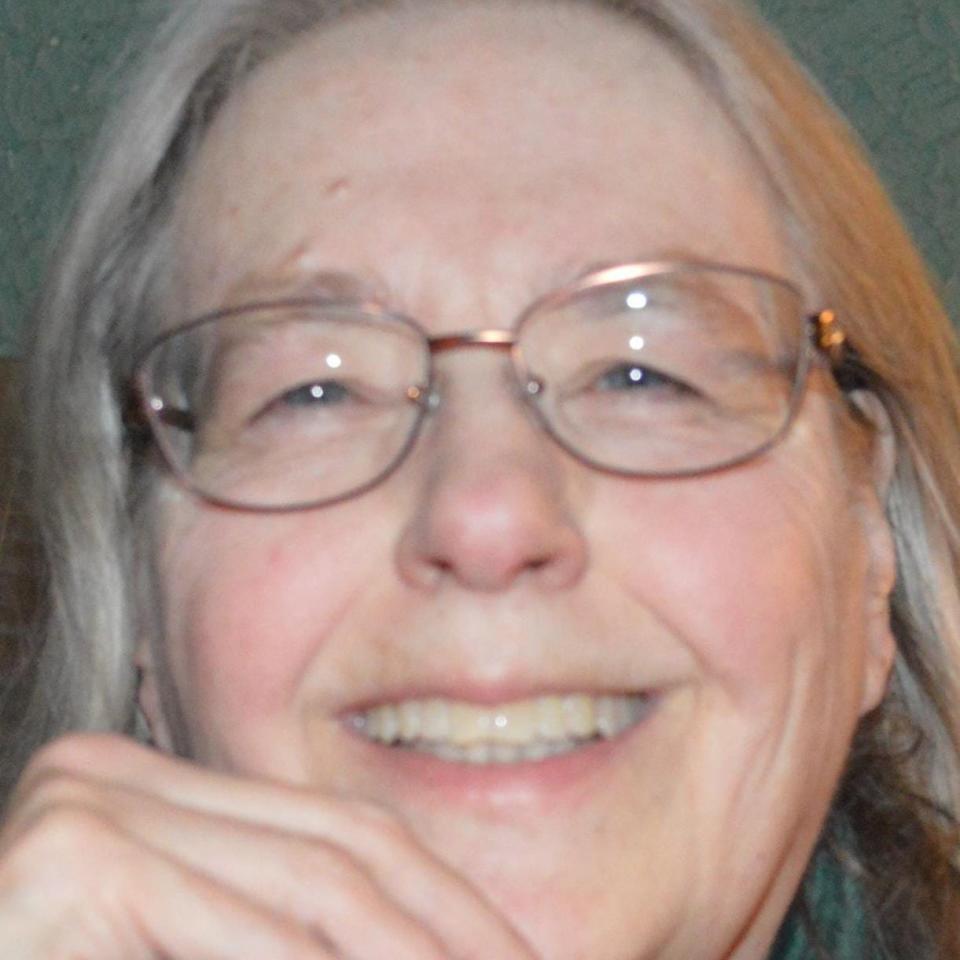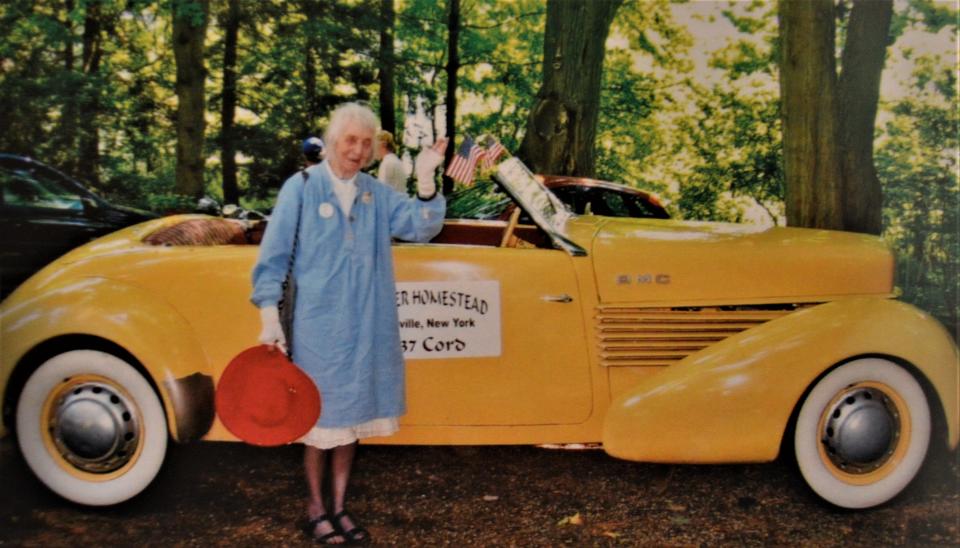Kathryn Ross: Barbara Chapin Williams, other women made history worth remembering
- Oops!Something went wrong.Please try again later.
- Oops!Something went wrong.Please try again later.
March is Women's History Month, and while I find having a specially designated month somewhat condescending, as if women's accomplishments have to be documented as if they are not part of history, it still has me thinking.
While I have always been fascinated by the life of certain women throughout history like Amelia Earhart, Annie Oakley, Joan of Arc and Calamity Jane, Eleanor Roosevelt and Jackie Kennedy, I can’t really say that the lives and feats of those women particularly impacted my life.
I respected them and I appreciate what they did in their lifetimes, kind of like the way I appreciate Queen Elizabeth II and how she dedicated her life to her job, her people, and her country. Of course, it didn’t hurt that she was a horsewoman, given how I feel about the equine beasts.
Currently I’m watching and listening to Liz Cheney and Hiliary Clinton, and who knows, the way things are going they could both impact my life and the lives of countless others.
But I’ve been thinking of women who have made particular impact on my life, substantially impacting my view on life and in particular how I have lived my life. Those early impacts come from my mother, of course. The life she led had the greatest impact on my life. But as I look at her life, her drive, her independence, her grit, I wonder what she could have done if her life had gone down a different road, a less traditional road.

I know my mother was happily married to my father for over 50 years and I know that she was hopelessly dedicated to him. The last 10 years of her life without him was only a half-life.
Her life after the loss of my Dad deteriorated and she slowly slipped away from the strong, decisive woman I had known for most of my life. Her happy moments were sporadic, and she drifted away from me and the rest of the family. For a long time I resented it, then I got some wisdom and came to understand her suffering.
But at that time I compared her to another woman of her same age that I had gotten to know, respect, love, and remember, Barbara Chapin Williams.
I admired Barbara for her independence, her intellect, her passion, and her lifestyle. Barbara was born in 1920 to an affluent restaurateur in Cleveland who, along with her mother Helen Mather, had strong local roots.
In Barbara's 2019 biography “Barbara and the Cord” by Andrew Phelan, the author concluded the trope with “We need more people like Barbara Chapin Williams. The world can always use people who care about problems and are willing to commit to trying to rectify those problems.”
I first met Barbara when she promoted the Mather Homestead Museum, which was later featured on the History Channel's "American Pickers" in 2015. She would bring stories of interest to my desk in the newspaper office. I became acquainted with her when she became a vocal activist against a nuclear waste dump being placed in the county.

I got to know her better when I joined the gathering on her front porch each July 4th to take part in the reading of the Declaration of Independence, her hunts for braille inscribed Easter eggs, Christmas and New Year's gatherings. I have a large photo of Barbara standing in a protest line holding a sign that proclaims her as a 2008 Peace Voter.
Barbara spent the early part of her life after graduating from Scripps College in California writing, painting, drawing and trying to bring culture to rural areas like Wellsville with the creation of the Carnival Caravan and development of the Artmobile concept. She was in her 40s when she married Glenn Williams, a tortured musician and composer with whom she traveled the world.
After 20 years of marriage he passed away, but unlike my mother Barbara didn't pine away. She threw herself into life. She was politically active and would routinely buttonhole me on the street to point out some local or national injustice she expected me to investigate and write about.
More: This high school English teacher's gothic novel has roots in the Southern Tier
I love my mother and I'm grateful for the strength she gave me, the upbringing, the sense of family. I'm also grateful to Barbara who taught me to “Rage, Rage, Against the dying of the light and to not go gentle into that good night.”
They are the kind of women who make history worth remembering.
— Kathryn Ross writes a weekly column.
This article originally appeared on The Evening Tribune: Women's History Month brings memories of Barbara Chapin Williams

